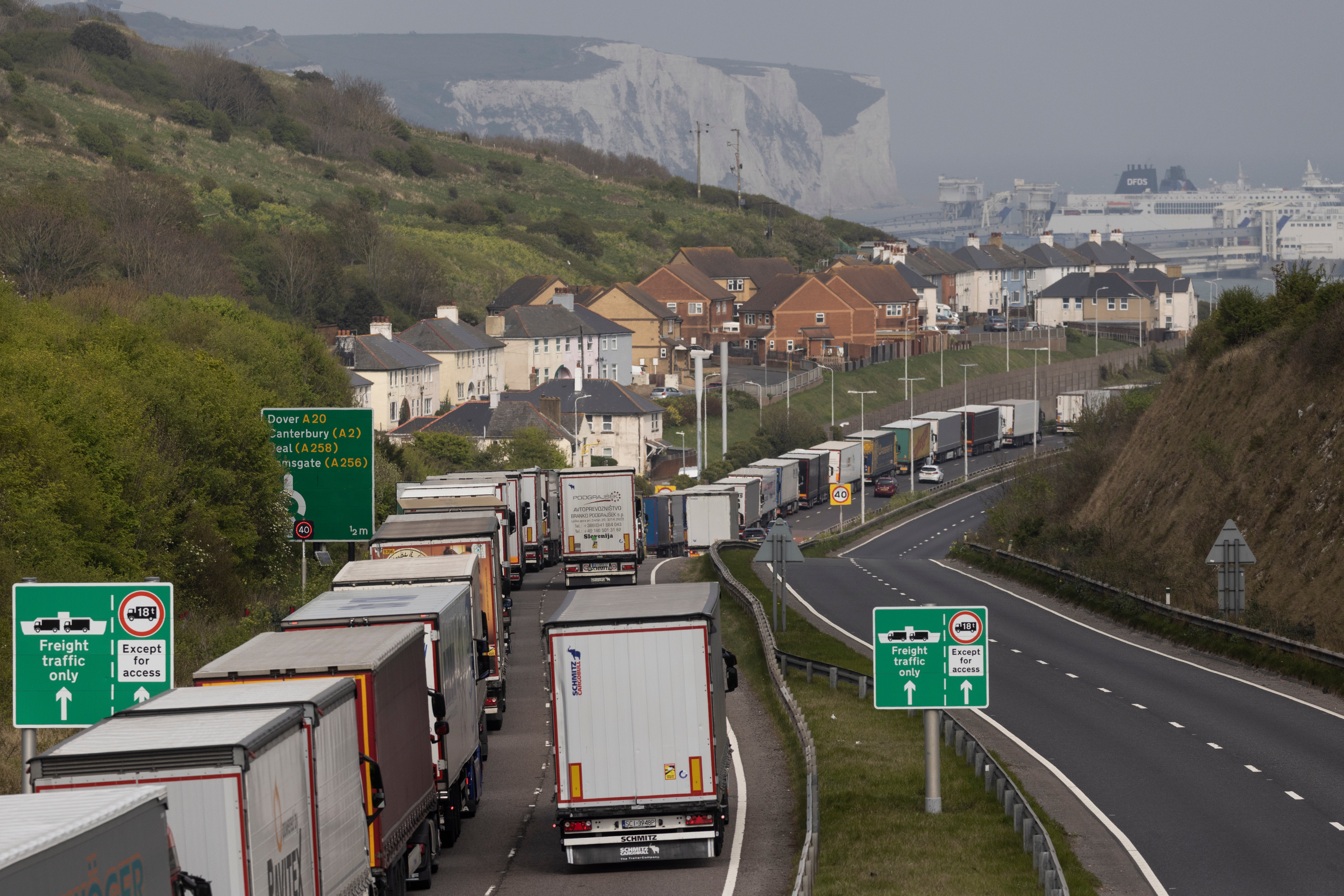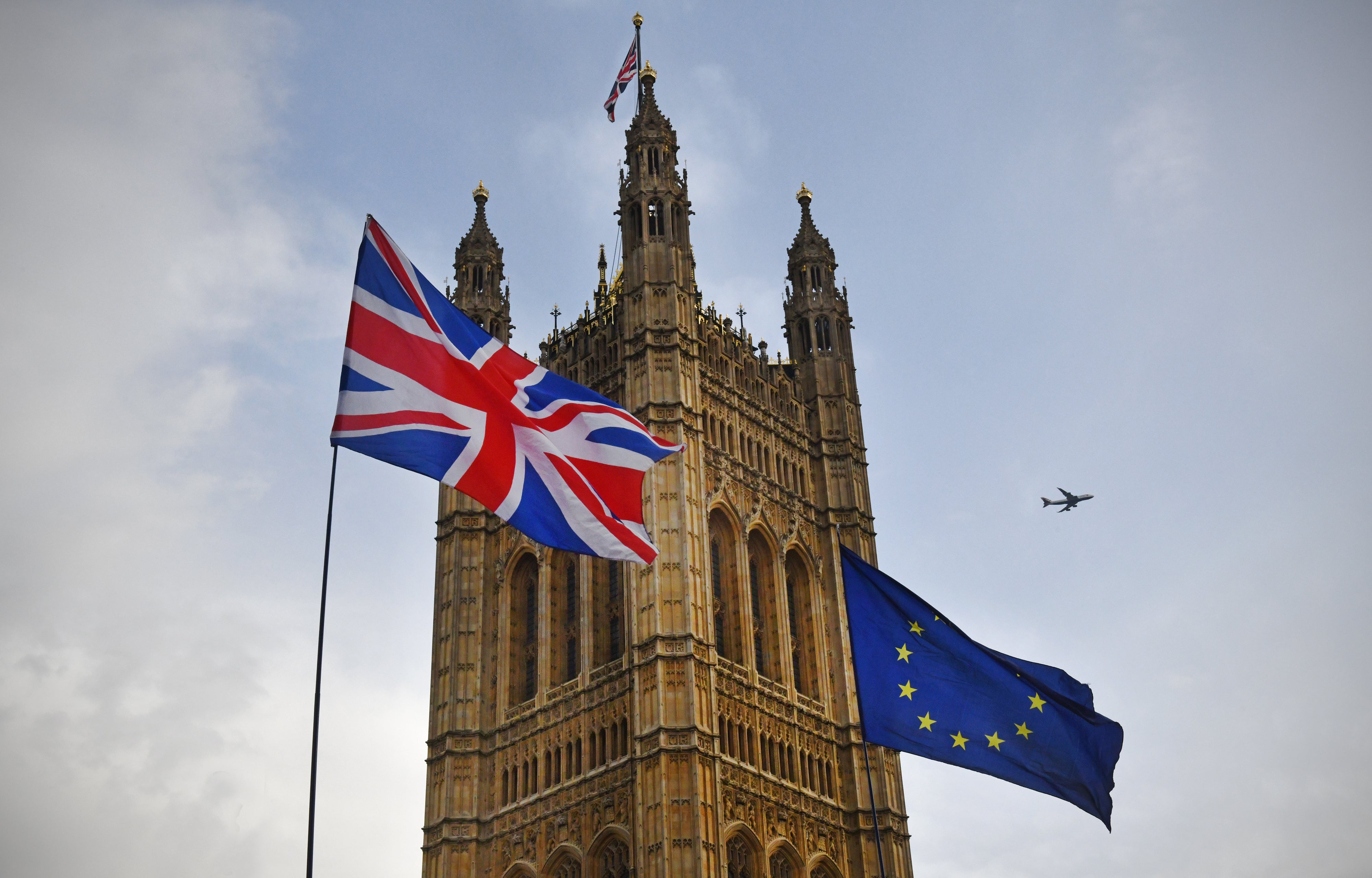More than 40% of British exports have disappeared from European shelves since Brexit
Government’s new trade red tape likely to hit long-term productivity, trade economists warn

More than 40 per cent of British products previously exported to the EU have disappeared from European shelves since Brexit, new figures show.
Trade economists trying to assess the effects of Brexit warned in research published on Monday that new bureaucracy was putting off exporters on a grand scale.
They also said their research showed the export gap created by the policy has “widened rather than closed” in a year of the new trade system being in place.
The researchers, from the Centre for Business Prosperity at Aston University, found that small businesses were the least likely to be able to deal with the government’s new red tape and would be most likely to give up selling abroad.
“We find that, due to the [EU-UK Trade and Cooperation Agreement], the UK has experienced a significant contraction of trading capacity in terms of the varieties of goods exported to the EU,” the researchers write.
“Our estimate suggests that as many as 42 per cent of the product varieties previously exported to EU have disappeared during the 15 months following January 2021.
“We argue that this decline has unfolded in three ways: a large number of exporters has ceased to export to the EU, the remaining exporters have streamlined their product lines, and fewer exporters are choosing to enter the EU market.”
The academics said that losing these exporters is likely to damage the UK economy in the long run by breaking “the pipeline for future export growth and harm the UK’s already frail productivity”.
Under the terms of the Brexit deal with the EU, British exporters have to fill out reams of new paperwork and bureaucracy in order to be able to export to the continent.
As a member of the EU, the UK was part of the single market and customs union and exempt from these requirements – enjoying privileged access to European markets and vice versa.

Dr Oleksandr Shepotylo, co-author of the paper said: “The product varieties that have disappeared are mostly those with low export value – we know this because the average export value increased as the number of varieties declined.
“These products are the ones typically exported by small firms or new exporters, or are exported to new markets. And it's those smaller businesses that would normally export much more in future, as they grow their volumes and products – so that’s the UK’s future export pipeline being affected, which has bleak implications.”
With 42 per cent of all British goods withdrawn from the EU market, the change in arrangements has affected virtually every sector.
Last year many British fishermen were the first to halt exports to the continent due to red tape. But they have swiftly been followed by other businesses.
One British brand to significantly slim down its offering was Marks & Spencers, which last year announced it was closing 11 of its French stores.
The retailer cited problems supplying the outlets with fresh and chilled foods caused by the new trading arrangements.
UK fashion brands like Simon Carter and Joules have also announced they are pulling back from supplying the continent given the new difficulties.
But it is among the smaller businesses that the biggest retreat has happened.
The Federation of Small Businesses last year said seven in 10 firms exporting to Europe have encountered problems and that almost one in four had suspended exports altogether.
Professor Jun Du, who also authored the paper, said it was important for the problem caused by the government’s policy to be “openly acknowledged and discussed”.
Until this was the case “we won’t see any necessary actions being taken”, she said.
“The evidence we present here shows the real loss of Brexit, the overall competitiveness of the UK as a global trader,” Professor Du continued.

Labour seized on the finding, and shadow trade minister Gareth Thomas said it was “devastating” to see small businesses “hit the hardest” by the policy.
“They have not only hamstrung the UK’s export potential, but are harming productivity and hinder much-needed growth across the UK,” he told The Independent.
“At the same time they have failed to deliver promised deals with the USA and India, breaking promises to help open up new markets.”
Labour has said it would look for tweaks to the Brexit deal like mutual recognition of qualifications – though Keir Starmer ruled out rejoining the bloc’s single market.
Asked about the findings, a government spokesperson said: “The TCA that we agreed in 2020 is the world’s largest zero tariffs and zero quotas deal and the first time the EU has ever agreed such access in a free trade agreement.
“Current ONS trade data shows that the UK’s trade recovery since the pandemic remains strong, with the value of exports in the 12 months to September 2022 at the largest since records began. Exports to the EU are still above pre-Covid levels despite recent global economic events.”






Join our commenting forum
Join thought-provoking conversations, follow other Independent readers and see their replies
Comments